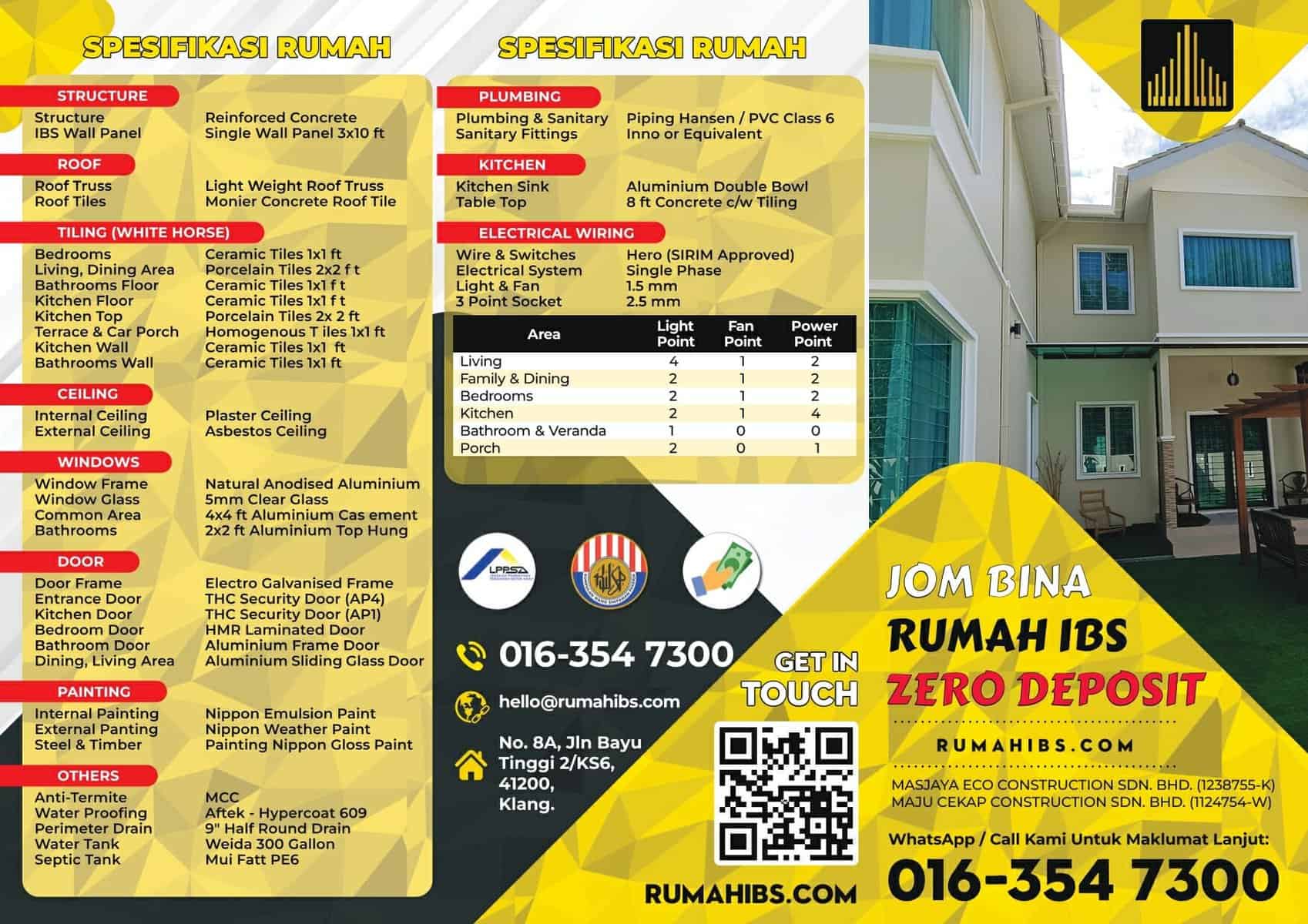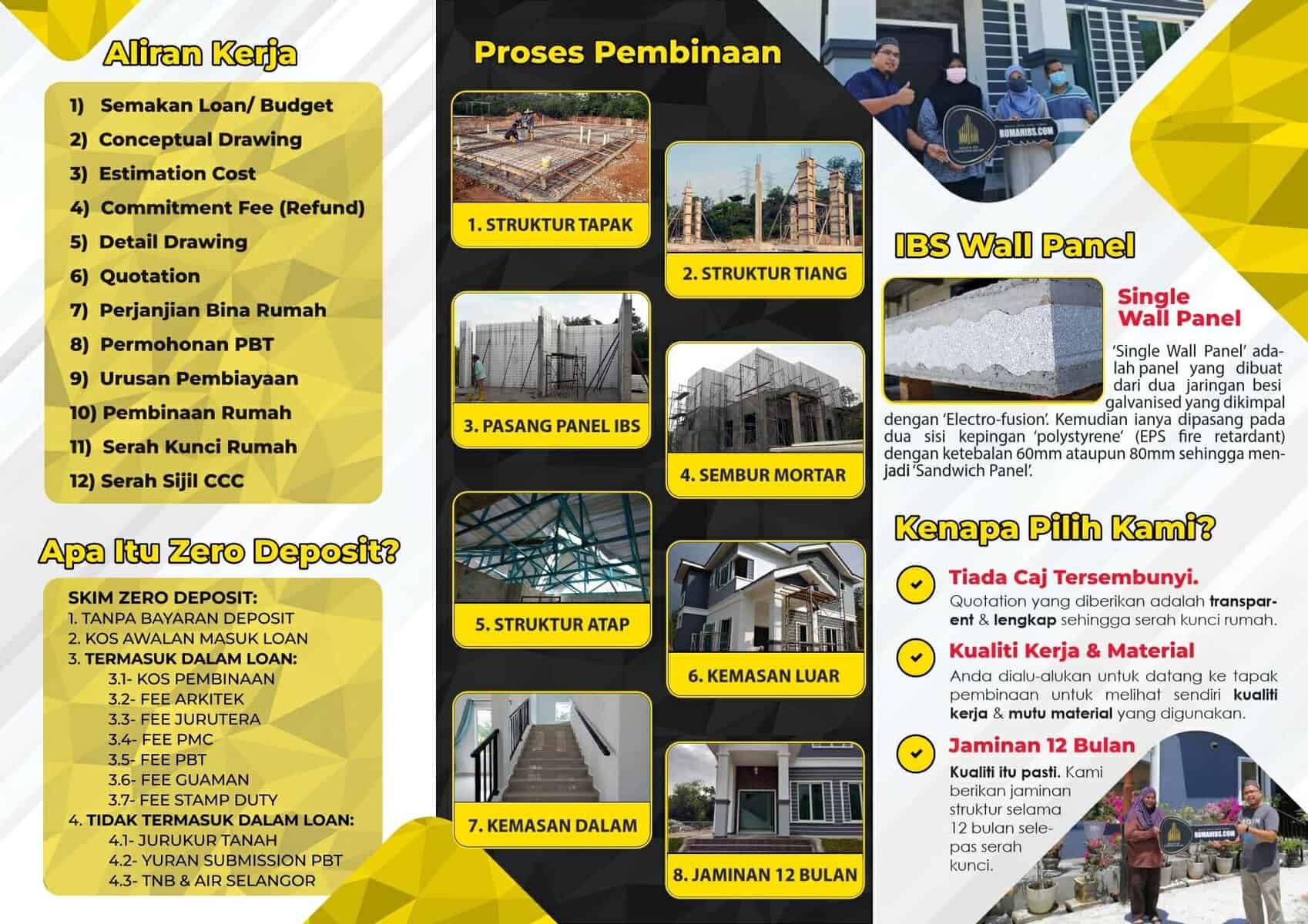
Blog
Integrating Sustainability in IBS Construction: Building for a Greener Future


Integrating Sustainability in IBS Construction: Building for a Greener Future
Table of Contents
- Introduction
- Understanding IBS Construction
- The Importance of Sustainability in Construction
- Sustainable Features of IBS Construction 4.1 Energy Efficiency in IBS Construction 4.2 Reduced Waste Generation in IBS Construction 4.3 Use of Eco-friendly Materials in IBS Construction 4.4 Water Conservation in IBS Construction
- Benefits of Integrating Sustainability in IBS Construction 5.1 Environmental Benefits of Sustainable IBS Construction 5.2 Economic Benefits of Sustainable IBS Construction 5.3 Social Benefits of Sustainable IBS Construction
- Challenges and Solutions for Sustainable IBS Construction 6.1 Supply Chain Management in Sustainable IBS Construction 6.2 Design and Planning Considerations in Sustainable IBS Construction 6.3 Training and Education in Sustainable IBS Construction 6.4 Regulatory Compliance in Sustainable IBS Construction
- Case Studies: Successful Implementation of Sustainable IBS Construction 7.1 Project A: Green Residential Complex 7.2 Project B: Sustainable Office Building
- Future Outlook: Advancements in Sustainable IBS Construction
- Conclusion
- FAQs (Frequently Asked Questions)
1. Introduction
As the world focuses more on sustainability and reducing environmental impact, the construction industry plays a crucial role in adopting greener practices. One innovative approach gaining traction is the integration of sustainability principles in Industrialized Building System (IBS) construction. In this article, we will explore the concept of integrating sustainability in IBS construction, its benefits, challenges, and real-world examples. Join us as we delve into the world of sustainable IBS construction and its potential to shape a greener future.
2. Understanding IBS Construction
Before delving into sustainable practices, it’s important to understand the fundamentals of IBS construction. Industrialized Building System (IBS) is a construction method that emphasizes off-site fabrication and assembly of building components. It involves the manufacturing of standardized building elements in a controlled factory environment, followed by their transportation to the construction site for final installation. This approach enhances efficiency, quality control, and significantly reduces construction time compared to traditional on-site construction.
3. The Importance of Sustainability in Construction
The construction industry has a substantial environmental impact, from resource depletion to carbon emissions. Recognizing the importance of sustainability, integrating sustainable practices in construction is imperative. Sustainable construction aims to minimize negative environmental effects, conserve resources, and create healthier and more energy-efficient buildings. By adopting sustainability principles, the construction industry can contribute to addressing climate change and promoting a greener future.
4. Sustainable Features of IBS Construction
Incorporating sustainability in IBS construction unlocks a range of eco-friendly features that set it apart from conventional construction methods. Let’s explore some of these sustainable features:
4.1 Energy Efficiency in IBS Construction
IBS construction embraces energy-efficient designs and materials to minimize energy consumption throughout a building’s lifecycle. By utilizing prefabricated components with integrated insulation and advanced HVAC systems, IBS structures can significantly reduce energy demands for heating, cooling, and lighting. The enhanced thermal performance of IBS buildings not only lowers energy bills but also reduces their carbon footprint.
4.2 Reduced Waste Generation in IBS Construction
Conventional construction methods often result in significant amounts of construction waste. However, IBS construction minimizes waste by optimizing material usage during the factory fabrication process. The precise measurement and cutting of building components in a controlled environment result in minimal material waste. Additionally, any surplus materials can be recycled or repurposed, further reducing the environmental impact.
4.3 Use of Eco-friendly Materials in IBS Construction
Sustainable IBS construction prioritizes the use of eco-friendly and recycled materials. These materials possess attributes such as low embodied energy, high durability, and recyclability. For instance, structural components made from engineered wood products not only reduce reliance on traditional timber but also promote sustainable forest management. Similarly, the use of recycled steel and concrete reduces the demand for virgin resources and minimizes carbon emissions.
4.4 Water Conservation in IBS Construction
Water scarcity is a pressing global concern, making water conservation crucial in sustainable construction. IBS structures incorporate efficient plumbing systems, water-efficient fixtures, and rainwater harvesting techniques. These measures optimize water usage, reduce consumption, and promote responsible water management.
5. Benefits of Integrating Sustainability in IBS Construction
The integration of sustainability in IBS construction brings forth a multitude of benefits. Let’s explore these benefits across different dimensions:
5.1 Environmental Benefits of Sustainable IBS Construction
Integrating sustainability in IBS construction offers significant environmental benefits. The reduced energy consumption and waste generation contribute to lower carbon emissions and a smaller ecological footprint. Additionally, the use of eco-friendly materials helps preserve natural resources and reduce environmental degradation. Sustainable IBS construction plays a vital role in creating a more sustainable built environment.
5.2 Economic Benefits of Sustainable IBS Construction
Sustainable IBS construction brings economic advantages. The streamlined construction process and reduced labor requirements in off-site manufacturing lead to shorter project durations and cost savings. The efficient use of materials reduces waste and associated expenses. Furthermore, energy-efficient IBS buildings result in lower operating costs, reducing long-term expenditures for building owners and occupants.
5.3 Social Benefits of Sustainable IBS Construction
Sustainable IBS construction positively impacts society by providing comfortable and healthy living spaces. Energy-efficient designs enhance indoor air quality and thermal comfort, leading to improved occupant well-being. The reduced construction time also minimizes disruption to nearby communities, reducing noise pollution and inconvenience. Sustainable buildings contribute to the overall quality of life and create healthier and more sustainable communities.
6. Challenges and Solutions for Sustainable IBS Construction
While integrating sustainability in IBS construction offers numerous benefits, certain challenges must be addressed to ensure successful implementation. Let’s explore some of these challenges and potential solutions:
6.1 Supply Chain Management in Sustainable IBS Construction
Efficient supply chain management is crucial for sustainable IBS construction. Coordinating the sourcing, transportation, and delivery of prefabricated components requires careful planning and collaboration among stakeholders. Close partnerships with suppliers and effective logistics management can help optimize the supply chain, minimize delays, and ensure the timely availability of materials.
6.2 Design and Planning Considerations in Sustainable IBS Construction
Designing for sustainability in IBS construction necessitates considering environmental factors, site-specific conditions, and local regulations. Architects and engineers need to incorporate energy-efficient designs, passive cooling strategies, and renewable energy systems into their plans. Additionally, effective project management and coordination are essential to ensure the successful integration of sustainable practices throughout the construction process.
6.3 Training and Education in Sustainable IBS Construction
To fully realize the potential of sustainable IBS construction, training and education play a crucial role. Construction professionals need to be equipped with the necessary knowledge and skills to implement sustainable practices effectively. Training programs, workshops, and certifications can help raise awareness and ensure the industry’s workforce is well-prepared for sustainable construction projects.
6.4 Regulatory Compliance in Sustainable IBS Construction
Navigating regulatory requirements is essential for sustainable IBS construction. It is crucial to stay updated on building codes, green certifications, and environmental standards. Adhering to these regulations ensures that sustainable practices are integrated seamlessly and that the construction project meets the necessary criteria.
7. Case Studies: Successful Implementation of Sustainable IBS Construction
Examining real-world examples of sustainable IBS construction can provide valuable insights. Here are two case studies showcasing successful implementation:
7.1 Project A: Green Residential Complex
In a recent project, a green residential complex was built using IBS construction methods and sustainable design principles. The complex incorporated energy-efficient building envelopes, solar panels for renewable energy generation, and rainwater harvesting systems. The integration of sustainable features resulted in reduced energy consumption, lower water usage, and improved overall environmental performance.
7.2 Project B: Sustainable Office Building
Another notable example is the construction of a sustainable office building using IBS techniques. The building incorporated green roofs for improved thermal insulation, efficient lighting systems, and intelligent building management systems for optimized energy use. The integration of sustainable IBS practices created a highly energy-efficient workplace, providing a comfortable and eco-friendly environment for occupants.
8. Future Outlook: Advancements in Sustainable IBS Construction
The future of sustainable IBS construction looks promising, with ongoing advancements and innovations. Researchers and industry professionals are exploring new materials, technologies, and construction methods to enhance sustainability further. Prefabrication techniques using eco-friendly and recyclable materials, the incorporation of smart building technologies, and the integration of renewable energy sources are among the exciting developments in the field.
9. Conclusion
Integrating sustainability in IBS construction presents an excellent opportunity to create environmentally friendly, energy-efficient, and cost-effective buildings. The combination of off-site fabrication, eco-friendly materials, and energy-efficient designs makes IBS a compelling choice for sustainable construction projects. By adopting sustainable practices, the construction industry can contribute to a greener future and help address the challenges of climate change and resource depletion.
10. FAQs (Frequently Asked Questions)
Q1: What is IBS construction, and how does it differ from conventional construction? IBS construction emphasizes off-site fabrication and assembly of building components, while conventional construction is predominantly done on-site. IBS offers benefits such as efficiency, quality control, and shorter construction time.
Q2: How does integrating sustainability in IBS construction benefit the environment? Integrating sustainability in IBS construction reduces energy consumption, minimizes waste generation, and promotes the use of eco-friendly materials. These practices contribute to lower carbon emissions, reduced resource depletion, and environmental preservation.
Q3: What are the economic advantages of sustainable IBS construction? Sustainable IBS construction leads to cost savings through streamlined construction processes, reduced labor requirements, and efficient material usage. Energy-efficient buildings also result in long-term operational cost reductions.
Q4: How does sustainable IBS construction positively impact society? Sustainable IBS construction provides comfortable and healthy living spaces, enhancing indoor air quality and thermal comfort. The reduced construction time minimizes disruption to communities, while sustainable buildings contribute to overall well-being and sustainable development.
Q5: What are the key challenges in implementing sustainable IBS construction? Some challenges include supply chain management, design considerations, training and education, and regulatory compliance. Addressing these challenges requires effective planning, collaboration, and adherence to industry standards and regulations.





